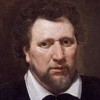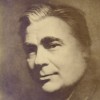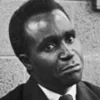The best way I kno ov tew repent of enny thing is tew do better next time.
[The best way I know of to repent of anything is to do better next time.]
Josh Billings (1818-1885) American humorist, aphorist [pseud. of Henry Wheeler Shaw]
Everybody’s Friend, Or; Josh Billing’s Encyclopedia and Proverbial Philosophy of Wit and Humor, ch. 139 “Affurisms: Hooks & Eyes” (1874)
(Source)
Variant:The best way I know to REPENT of anything is not to do it again and to do better next time.
[H. Montague, ed., Wit and Wisdom of Josh Billings (1913)]
To be capable of respect is, in these days, almost as rare as to be worthy of it.
[Être capable de respect est aujourd’hui presque aussi rare qu’en être digne.]
Joseph Joubert (1754-1824) French moralist, philosopher, essayist, poet
Pensées [Thoughts], ch. 18 “Du Siècle [On the Age],” ¶ 38 (1850 ed.) [tr. Calvert (1866), ch. 13]
(Source)
(Source (French)). Alternate translations:To be capable of respect is well-night as rare at the present day as to be worthy of it.
[tr. Attwell (1896), ¶ 247]To be capable of respect is almost as rare in these days as to be worthy of it.
[tr. Lyttelton (1899), ch. 17, ¶ 15]
If men would consider not so much wherein they differ, as wherein they agree, there would be far less of uncharitableness and angry feeling in the world.
Joseph Addison (1672-1719) English essayist, poet, statesman
(Attributed)
Disputed. First attributed to "Addison" in the early 20th Century, in a paper by A. L. Evans, "Unity in Diversity," read before the Massachusetts Osteopathic Society (17 Mar 1906), and by Tryon Edwards, A Dictionary of Thoughts (1908). But this may have been a reference to another man of the same last name who was credited with publishing Interesting Anecdotes, Memoirs, Allegories, Essays, and Poetical Fragments (1794).
Integrity without knowledge is weak and useless, and knowledge without integrity is dangerous and dreadful.
Samuel Johnson (1709-1784) English writer, lexicographer, critic
The History of Rasselas, Prince of Abissinia, ch. 41 (1759)
(Source)
I have not ceased being fearful, but I have ceased to let fear control me. I have accepted fear as a part of life, specifically the fear of change, the fear of the unknown, and I have gone ahead despite the pounding in the heart that says: turn back, turn back, you’ll die if you venture too far.
Men hate more steadily than they love; and if I have said something to hurt a man once, I shall not get the better of this by saying many things to please him.
Samuel Johnson (1709-1784) English writer, lexicographer, critic
In James Boswell, Life of Samuel Johnson, “September 15, 1777” (1791)
(Source)
The basis of our governments being the opinion of the people, the very first object should be to keep that right; and were it left to me to decide whether we should have a government without newspapers, or newspapers without a government, I should not hesitate a moment to prefer the latter.
Thomas Jefferson (1743-1826) American political philosopher, polymath, statesman, US President (1801-09)
Letter (1787-01-16) to Edward Carrington
(Source)
Enjoy the power and beauty of your youth. Oh, never mind. You will not understand the power and beauty of your youth until they’ve faded. But trust me, in 20 years, you’ll look back at photos of yourself and recall in a way you can’t grasp now how much possibility lay before you and how fabulous you really looked. You are not as fat as you imagine.
The color of the world
Is changing day by day!
Red: the blood of angry men!
Black: the dark of ages past!
Red: a world about to dawn!
Black: the night that ends at last!
Your imagination, your initiative, and your indignation will determine whether we build a society where progress is the servant of our needs, or a society where old values and new visions are buried under unbridled growth. For in your time we have the opportunity to move not only toward the rich society and the powerful society, but upward to the Great Society.
Lyndon B. Johnson (1908-1973) American politician, educator, US President (1963-69)
Speech (1964-05-22), Graduation, University of Michigan, Ann Arbor
(Source)
Johnson had been awarded the honorary degree of Doctor of Civil Law. This speech was the first formal presentation of his new domestic agenda, the Great Society.
In repenting ov sins, men are apt tew repent ov thoze they hain’t got, and overlook those they hav.
[In repenting of sins, men are apt to repent of those they haven’t got, and overlook those they have.]
Josh Billings (1818-1885) American humorist, aphorist [pseud. of Henry Wheeler Shaw]
Everybody’s Friend, Or; Josh Billing’s Encyclopedia and Proverbial Philosophy of Wit and Humor, ch. 155 “Affurisms: Ink Lings” (1874)
(Source)
Why, when no honest man will deny in private that every ultimate problem is wrapped in the profoundest mystery, do honest men proclaim in pulpits that unhesitating certainty is the duty of the most foolish and ignorant? Is it not a spectacle to make the angels laugh? We are a company of ignorant beings, feeling our way through mists and darkness, learning only by incessantly repeated blunders, obtaining a glimmering of truth by falling into every conceivable error, dimly discerning light enough for our daily needs, but hopelessly differing whenever we attempt to describe the ultimate origin or end of our paths; and yet, when one of us ventures to declare that we don’t know the map of the universe as well as the map of our infinitesimal parish, he is hooted, reviled, and perhaps told that he will be damned to all eternity for his faithlessness.
Leslie Stephen (1832-1904) English critic, man of letters, biographer
“An Agnostic’s Apology,” Fortnightly Review (1876)
They say princes learn no art truly, but the art of horsemanship. The reason is, the brave beast is no flatterer. He will throw a prince as soon as his groom.
Ben Jonson (1572-1637) English playwright and poet
Timber, or Discoveries Made upon Men and Matter, para. 95 “Illiteratus Princeps” (1641)
From an aphorism by the Greek philosopher Carneades, quoted in by Montaigne, Essays, Book 3, ch. 7 "Of the Incommodity of Greatness" (1588): "Princes' children learnt nothing aright but to manage and ride horses; forsomuch as in all other exercises every man yieldeth and giveth them the victory; but a horse, who is neither a flatterer nor a courtier, will as soon throw the child of a king as the son of a base porter."
Admiration is the Daughter of Ignorance.
Benjamin Franklin (1706-1790) American statesman, scientist, philosopher, aphorist
Poor Richard (1736 ed.)
(Source)
Some are born great, some achieve greatness, and some hire public relations officers.
Daniel J. Boorstin (1914-2004) American historian, professor, attorney, writer
(Attributed)
See Shakespeare.
Before yu undertaik tew change a man’s politiks or religion, be sure yu have got a beter one to offer him.
[Before you undertake to change a man’s politics or religion, be sure you have got a better one to offer him.]
Example is always more efficacious than precept.
Samuel Johnson (1709-1784) English writer, lexicographer, critic
The History of Rasselas, Prince of Abissinia, ch. 30 (1759)
(Source)
Be careful whose advice you buy, but be patient with those who supply it. Advice is a form of nostalgia. Dispensing it is a way of fishing the past from the disposal, wiping it off, painting over the ugly parts and recycling it for more than it’s worth.
The purse is any Highwayman’s who might meet me with a loaded pistol, but the Self is mine and God my Maker’s; it is not yours; and I will resist you to the death.
Good impulses are naught, unless they become good actions.
[Les bons mouvements ne sont rien, s’ils ne deviennent de bonnes actions.]Joseph Joubert (1754-1824) French moralist, philosopher, essayist, poet
Pensées [Thoughts], ch. 5 “Des Passions et des Affections de l’Âme [On the Soul],” ¶ 75 (1850 ed.) [tr. Calvert (1866)]
(Source)
A caustic observer once remarked that when Dr. Johnson spoke of patriotism as the last refuge of a scoundrel, “he was ignorant of the infinite possibility contained in the word ‘reform.'”
Theodore Roosevelt (1858-1919) American politician, statesman, conservationist, writer, US President (1901-1909)
“Latitude and Longitude among Reformers” (Jun 1900)
See Johnson.
Man is not weak; knowledge is more than equivalent to force. The master of mechanicks laughs at strength.
Samuel Johnson (1709-1784) English writer, lexicographer, critic
The History of Rasselas, Prince of Abissinia, ch. 13 (1759)
(Source)
A baby is a full time job for three adults. Nobody tells you that when you’re pregnant, or you’d probably jump off a bridge. Nobody tells you how all-consuming it is to be a mother — how reading goes out the window and thinking too.
Youth is a blunder; Manhood a struggle; Old Age a regret.
Benjamin Disraeli (1804-1881) English politician and author
Coningsby: Or, The New Generation, Book 3, ch. 1 (1844)
(Source)
All, too, will bear in mind this sacred principle, that though the will of the majority is in all cases to prevail, that will to be rightful must be reasonable; that the minority possess their equal rights, which equal law must protect, and to violate would be oppression.
Thomas Jefferson (1743-1826) American political philosopher, polymath, statesman, US President (1801-09)
Inaugural Address (1801-03-14)
(Source)
It always did bother me that the American public were more interested in me than in my work. And after all there is no sense in it because if it were not for my work they would not be interested in me so why should they not be more interested in my work than in me. That is one of the things one has to worry about in America.
Remorse drives the weak to despair and the strong to sainthood.
[Die Reue treibt den Schwachen zur Verzweiflung und macht den Starken zum Heiligen.]
Marie von Ebner-Eschenbach (1830-1916) Austrian writer
Aphorisms [Aphorismen], No. 412 (1880) [tr. Scrase/Mieder (1994)]
Advice is seldom welcome; and those who want it the most, always like it the least.
Lord Chesterfield (1694-1773) English statesman, wit [Philip Dormer Stanhope]
Letter to his son, #138 (29 Jan 1748)
(Source)
There is but one way for a president to deal with Congress, and that is continuously, incessantly, and without interruption. If it is really going to work, the relationship has got to be almost incestuous. He’s got to know them better than they know themselves. And then, on the basis of this knowledge, he’s got to build a system that stretches from the cradle to the grave, from the moment a bill is introduced to the moment it is officially enrolled as the law of the land.
Lyndon B. Johnson (1908-1973) American politician, educator, US President (1963-69)
Comment to Doris Kearns Goodwin
(Source)
Quoted in Doris Kearns Goodwin, Lyndon Johnson and the American Dream, ch. 8 "The Great Society" (1976). Kearns was an intern and staff member in the Johnson White House, and worked with him on his memoirs.
One more day till revolution,
We will nip it in the bud!
We’ll be ready for these schoolboys,
They will wet themselves with blood!
The first thing that happens to men once they have had to give up any pleasure, whether for propriety’s sake, or from satiety, or for their health, is to condemn it in other people. Such behavior implies a sort of attachment to the very things one has just renounced: we want nobody else to enjoy the good things that we have lost; it is a feeling of jealousy.
[La première chose qui arrive aux hommes après avoir renoncé aux plaisirs, ou par bienséance, ou par lassitude, ou par régime, c’est de les condamner dans les autres. Il entre dans cette conduite une sorte d’attachement pour les choses mêmes que l’on vient de quitter; l’on aimerait qu’un bien qui n’est plus pour nous ne fût plus aussi pour le reste du monde: c’est un sentiment de jalousie.]
Jean de La Bruyère (1645-1696) French essayist, moralist
The Characters [Les Caractères], ch. 11 “Of Mankind [De l’Homme],” § 112 (11.112) (1688) [tr. Stewart (1970)]
(Source)
(Source (French)). Alternate translations:The first thing men do, when they have renounc'd pleasure, either out of decency, surfeit, or conviction, is to condemn it in others. This sort of management is however seldom free from a particular affection for those very things they left off, but they would have no body enjoy the pleasure they can no longer enjoy themselves, which proceeds more from Jealousie than any thing else.
[Bullord ed. (1696)]The first thing Men do, when they have renounc'd Pleasure, either out of Decency, Surfeit, or Conviction, is to condemn it in others. They preserve, in this Conduct, a sort of Affection for the very things they left off; they would have no body enjoy the Pleasure they can no longer enjoy themselves: 'Tis a sentiment of Jealousy.
[Curll ed. (1713)]The first Thing, when Men have renounced Pleasure, either out of Decency, Satiety, or Necessity, is to condemn it in others. This Sort of Reproof, however, is not free from a latent Affection for their forsaken Pleasures; they would interdict to all others what they can themselves no longer enjoy; their Admonitions are the Snarlings of Jealousy, not the Dictates of Purity.
[Browne ed. (1752)]The first thing men do when they have renounced pleasure, through decency, lassitude, or for the sake of health, is to condemn it in others. Such conduct denotes a kind of latent affection for the very things they left off; they would like no one to enjoy a pleasure they can no longer indulge in; and thus they show their feelings of jealousy.
[tr. Van Laun (1885)]
I was much cheered upon my arrival [in prison], by the warder at the gate, who had to take particulars about me. He asked my religion, and I replied, ‘agnostic.’ He asked how to spell it, and remarked with a sigh, “Well, there are many religions, but I suppose they all worship the same God.” This remark kept me cheerful for about a week.
Bertrand Russell (1872-1970) English mathematician and philosopher
The Autobiography of Bertrand Russell: 1914-1944, ch. 1 “The First War” (1968)
(Source)
When imprisoned in 1918, during World War I, for his pacifist, anti-war activities.
You are entitled to know whether a man seeking your suffrages is a man of clean and upright life, honorable in all of his dealings with his fellows, and fit by qualification and purpose to do well in the great office for which he is a candidate ; but you are not entitled to know matters which lie purely between himself and his Maker. If it is proper or legitimate to oppose a man for being a Unitarian […] then it would be equally proper to support or oppose a man because of his views on justification by faith, or the method of administering the sacrament, or the gospel of salvation by works. If you once enter on such a career there is absolutely no limit at which you can legitimately stop.
Theodore Roosevelt (1858-1919) American politician, statesman, conservationist, writer, US President (1901-1909)
Letter to J. C. Martin (9 Nov 1908)
(Source)
While we go with the stream, we are unconscious of its rapid course; but when we begin to stem it ever so little, it makes itself felt.
François Fénelon (1651-1715) French theologian, poet, writer [François de Salignac de la Mothe-Fénelon]
Letter to the Comtesse de Gramont (21 Mar 1690)
(Source)
He who has imagination without learning has wings and no feet.
[Celui qui a de l’imagination sans érudition, a des ailes et n’a pas de pieds.]
Joseph Joubert (1754-1824) French moralist, philosopher, essayist, poet
Pensées [Thoughts], ch. 4 “De la Nature des Esprits [On the Nature of Minds],” ¶ 39 (1850 ed.) [tr. Attwell (1896), ¶ 53]
(Source)
(Source (French)). Alternate translations:The man of imagination without learning has wings and no feet.
[tr. Lyttelton (1899), ch. 3, ¶ 16]The man of imagination who is unlearned has wings and no feet.
[tr. Collins (1928), ch. 4]
When property becomes so fluctuating and the love of property so restless and so ardent, I cannot but fear that men may arrive at such a state as to regard every new theory as a peril, every innovation as an irksome toil, every social improvement as a stepping stone to revolution, and so refuse to move altogther for fear of being moved too far. I dread […] lest they should at last so entirely give way to a cowardly love of present enjoyment as to lose sight of the interests of their future selves and those of their descendents and prefer to glide along the easy current of life rather than to make, when it is necessary, a strong and sudden effort to a higher purpose.
Nothing will ever be attempted, if all possible objections must be first overcome.
Samuel Johnson (1709-1784) English writer, lexicographer, critic
The History of Rasselas, Prince of Abissinia, ch. 6 (1759)
(Source)
Chronic remorse, as all the moralists are agreed, is a most undesirable sentiment. If you have behaved badly, repent, make what amends you can, and address yourself to the task of behaving better next time. On no account brood over your wrongdoing. Rolling in the muck is not the best way of getting clean.
The care of every man’s soul belongs to himself. But what if he neglect the care of it? Well what if he neglect the care of his health or estate, which more nearly relate to the state? Will the magistrate make a law that he shall not be poor or sick? Laws provide against injury from others, but not from ourselves. God himself will not save men against their wills.
Thomas Jefferson (1743-1826) American political philosopher, polymath, statesman, US President (1801-09)
“Notes on Religion” (1776-10?)
(Source)
Labeled by Jefferson "Scraps Early in the Revolution."
There are no problems which we cannot solve together, and very few that any of us can settle by himself.
Lyndon B. Johnson (1908-1973) American politician, educator, US President (1963-69)
Speech (1964-11-28), Press Conference, LBJ Ranch, Johnson City, Texas
(Source)
Regarding the Atlantic Alliance (NATO). Variant: "There are no problems we cannot solve together, and very few that we can solve by ourselves."
There must be either a predestined Necessity and inviolable plan, or a gracious Providence, or a chaos without design or director. If then there be an inevitable Necessity, why kick against the pricks? If a Providence that is ready to be gracious, render thyself worthy of divine succour. But if a chaos without guide, congratulate thyself that amid such a surging sea thou hast a guiding Reason.
[Ἤτοι ἀνάγκη εἱμαρμένης καὶ ἀπαράβατος τάξις ἢ πρόνοια ἱλάσιμος ἢ φυρμὸς εἰκαιότητος ἀπροστάτητος. εἰ μὲν οὖν ἀπαράβατος ἀνάγκη, τί ἀντιτείνεις; εἰ δὲ πρόνοια ἐπιδεχομένη τὸ ἱλάσκεσθαι, ἄξιον σαυτὸν ποίησον τῆς ἐκ τοῦ θείου βοηθείας. εἰ δὲ φυρμὸς ἀνηγεμόνευτος, ἀσμένιζε ὅτι ἐν τοιούτῳ κλύδωνι αὐτὸς ἔχεις ἐν σαυτῷ τινα νοῦν ἡγεμονικόν.]
Marcus Aurelius (AD 121-180) Roman emperor (161-180), Stoic philosopher
Meditations, Book 12, #14 [tr. Haines (1916)]
(Source)
Original Greek. Alternate translations:Either fate, (and that either an absolute necessity, and unavoidable decree; or a placable and flexible Providence) or all is a mere casual confusion, void of all order and government. If an absolute and unavoidable necessity, why doest thou resist? If a placable and exorable Providence, make thyself worthy of the divine help and assistance. If all be a mere confusion without any moderator, or governor, then hast thou reason to congratulate thyself; that in such a general flood of confusion thou thyself hast obtained a reasonable faculty, whereby thou mayest govern thine own life and actions.
[tr. Casaubon (1634), #11]Either the Order of Things are fixed by irrevocable Fate, or Providence may be worked into Compassion, or else the World Floats at Raondom without any Steerage. Now if nature lies under immovable Necessity, to what purpose should you struggle against it? If the favor of Providence is to be gained, qualify your self for the Divine Assistance: But if Chance, and Confusion carry it, and no body sits at the Helm; be you contented and Ride out the Storm patiently, for you have a Governor within you , though the World has none.
[tr. Collier (1701)]Either there is a fatal necessity and invincible order, or a kind providence, or a confusion without a purpose and without a director. If then there is an invincible necessity, why dost thou resist? But if there is a providence which allows itself to be propitiated, make thyself worthy of the help of the divinity. But if there is a confusion without a governor, be content that in such a tempest thou hast in thyself a certain ruling intelligence.
[tr. Long (1862)]Either the order of things is fixed by irrevocable fate, or providence may be worked into compassion, or else the world floats at random without any steerage. Now if nature lies under an immovable necessity, to what purpose should you struggle against it? If the favor of providence is to be gained, qualify yourself for divine assistance; but if chance and confusion prevail, be you contented that in such a storm you have a governing intelligence within you.
[tr. Zimmern (1887)]Either the Necessity of destiny and an order none may transgress, or Providence that hears intercession, or an ungoverned welter without a purpose. If then a Necessity which none may transgress, why do you resist? If a Providence admitting intercession, make yourself worthy of assistance from the Godhead. If an undirected welter, be glad that in so great a flood of waves you have yourself within you a directing mind.
[tr. Farquharson (1944)]Fatal necessity, and inescapable order. Or benevolent Providence. Or confusion -- random and undirected. If it's an inescapable necessity, why resist it? If it's Providence, admits of being worshipped, then try to be worthy of God's aid. If it's confusion and anarchy, then be grateful that on this raging sea you have a mind to guide you.
[tr. Hays (2003)]Either predetermined necessity and unalterable cosmic order, or a gracious providence, or a chaotic ungoverned mixture. If a predetermined necessity, why do you resist? If it is a gracious Providence that can hear our prayers, then make yourself worthy of divine assistance. If a chaotic ungoverned mixture, be satisfied that in the midst of this storm, you have within yourself a mind whose nature it is to govern and command.
[tr. Needleman/Piazza (2008)]
The demand for a statement of a candidate’s religious belief can have no meaning except that there may be discrimination for or against him because of that belief. Discrimination against the holder of one faith means retaliatory discrimination against men of other faiths. The inevitable result of entering upon such a practice would be an abandonment of our real freedom of conscience and a reversion to the dreadful conditions of religious dissension which in so many lands have proved fatal to true liberty, to true religion, and to all advance in civilization.
Theodore Roosevelt (1858-1919) American politician, statesman, conservationist, writer, US President (1901-1909)
Letter to J. C. Martin (9 Nov 1908)
(Source)
Science investigates; religion interprets. Science gives man knowledge that is power; religion gives man wisdom that is control. Science deals mainly with facts; religion deals mainly with values. The two are not rivals. They are complimentary. Science keeps religion from sinking into the valley fo crippling irrationalism and paralyzing obscurantism. Religion prevents science from falling into the marsh of obsolete materialism and moral nihilism.
Martin Luther King, Jr. (1929-1968) American clergyman, civil rights leader, social activist, preacher
Strength to Love, ch. 1 “A Tough Mind and a Tender Heart,” sec. 1 (1963)
(Source)
Whipping and abuse are like laudanum; you have to double the dose as the sensibilities decline.
When you go in search of honey you must expect to be stung by bees.
Kenneth Kaunda (1924-2021) Zambian teacher, revolutionary, politician
Quoted in the Observer (London) (1982-09-05)
(Source)
Sometimes attributed to Joseph Joubert, but not found in his works.
The question is not, Can they reason? nor, Can they talk? but, Can they suffer?
Jeremy Bentham (1748-1832) English jurist and philosopher
An Introduction to the Principles of Morals and Legislation, ch. 17, sec. 1, footnote (1789)
(Source)
On animals, questioning why they are treated differently under the law.
Men are not rational beings, as commonly supposed. A man is a bundle of instincts, feelings, sentiments, which severally seek their gratification, and those which are in power get hold of the reason and use it to their own ends, and exclude all other sentiments and feelings from power.
It is seldom that we find either men or places such as we expect them.
Samuel Johnson (1709-1784) English writer, lexicographer, critic
The Idler, #58 (26 May 1759)
(Source)
So, we’ll go no more a-roving
So late into the night,
Though the heart be still as loving,
And the moon be still as bright.For the sword outwears its sheath,
And the soul wears out the breast,
And the heart must pause to breathe,
And love itself have rest.Though the night was made for loving,
And the day returns too soon,
Yet we’ll go no more a-roving
By the light of the moon.George Gordon, Lord Byron (1788-1824) English poet
“So We’ll Go No More A-Roving” (1817)
(Source)
Included in a letter to his friend Thomas Moore (28 Feb 1817), in which he complained he'd been up too late on too many night during the Carnival in Venice.



























































